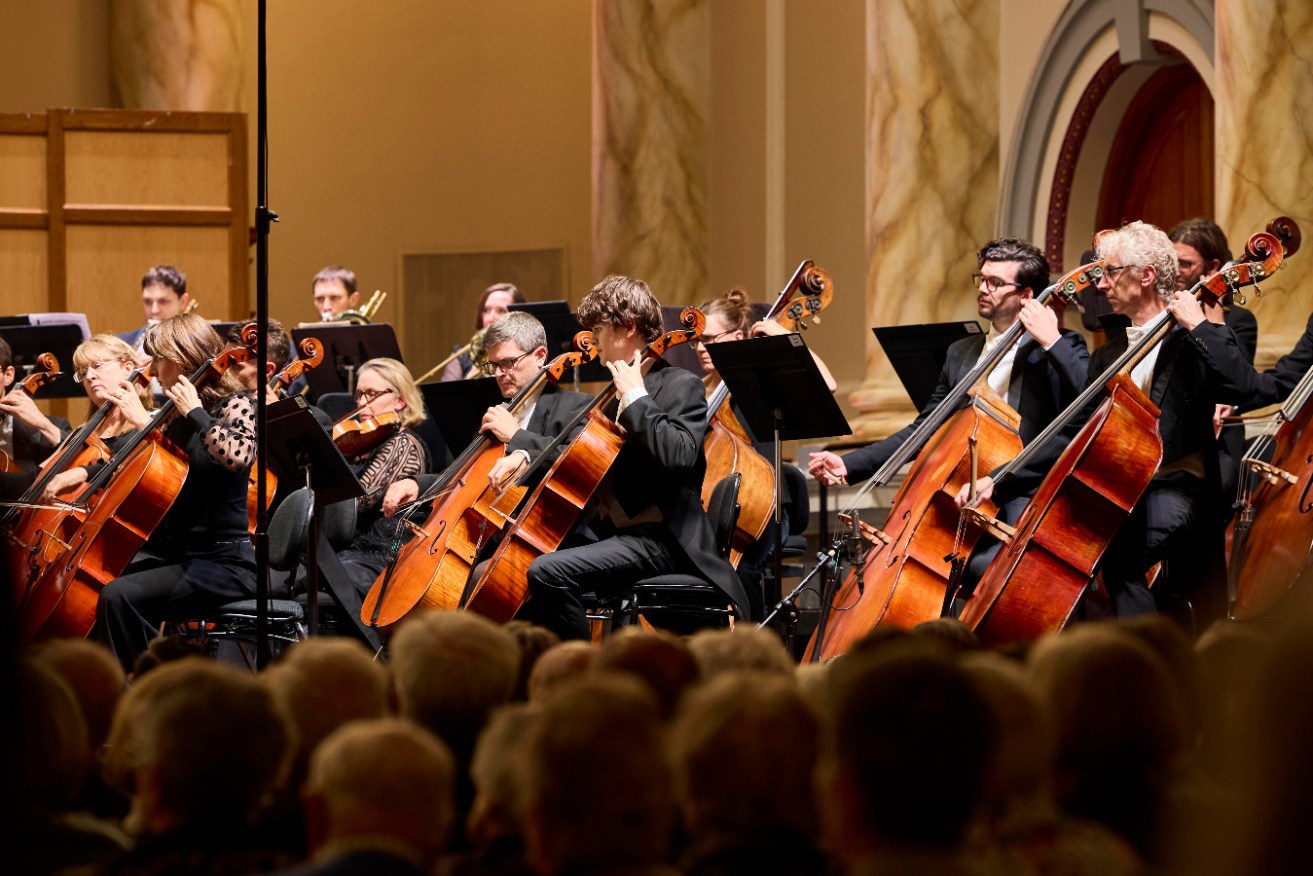ASO review: Vitality with Pinchas Zukerman
After COVID-related delays beginning in 2020, the ASO’s date with Pinchas Zukerman finally materialised and with it a most magical performance of the Beethoven Violin Concerto.


Supplied image
Three years ago, the celebrated violinist Pinchas Zukerman was to have visited these shores again to play a work for which he is justly famous – Beethoven’s Violin Concerto.
The wait was worth it. This veteran Israeli-American is one of the last of the greats of violin playing, and to hear him perform the pinnacle of concertos was like touching a glorious past.
Beethoven’s one and only concerto for the instrument came across as a larger and more transcendent work than one may have become accustomed to knowing. A lifetime of thought, love and devotion made it so.
But to start at the beginning, it was Zukerman the conductor. It is a rare thing for violinists to switch to podium duties, especially in the same concert, yet the first half of this concert suggested very persuasively that, in another life, Zukerman could have been an opera conductor – an Italian opera conductor.
The major partnering work in this revised ‘Vitality’ program was Verdi’s La forza del destino Overture, and one felt immediately thrust into the hot drama of this curtain-raiser. Zukerman pushed deeply into its contrasts, not speeding away but surprisingly slowing things right down and descending into a true pianissimo to build up expectation.
Then, abruptly shaking his hands, he impelled the violins to burst forth in a fit of anger. Marvellous, so theatrical.
Then that most haunting of melodies arrives – the one used so memorably in the film Jean de Florette. Ushered with beguiling simplicity, it had one holding one’s breath. You don’t have to be a Verdi lover to adore this stuff.
Zukerman’s conducting is like his violin playing: saturated in colour and expressive in a way that respects music’s longer span.
Also in the first half were New York composer Jessie Montgomery’s Starburst and Samuel Coleridge-Taylor’s Ballade in A Minor, both heard here for the first time by the ASO.
For strings alone, Starburst is a short piece of rhythmic energy and élan that make it a satisfying concert opener. The orchestra was immediately on its toes in impressively tight playing.
It was from there to a much neglected British composer who turns out to have been strongly championed by Elgar. Coleridge-Taylor, perhaps known best for ‘Song of Hiawatha’, wrote what is surely one of the boldest orchestral scores of his generation in the Ballade. In exuberance and colour, it outdoes anything by the English school, and it equals the American composers in shine.
The vigour and romantic lift of this performance were wonderful.
But the sight of Zukerman returning with his violin tucked under his arm was all had been waiting for, because here was the whole point of the concert.
Even among the greats, Zukerman has a particular sound that sets him apart from other violinists. He lavishes on the vibrato in an old school manner, but at the same time he has an uncanny ability to find the singing note and makes it glow.
The Beethoven Violin Concerto is full of singing line, and in his performance the violin becomes an opera singer: it was as if Maria Callas had taken to the stage. Incongruous? Not really. His amazing artistry and the particular virility of his playing – employing lots of arm power to navigate arpeggios and ascend the high notes – made this performance one of magical beauty.
He also slightly anticipates the downbeat just like Callas, for that added intensity. It sounds as if the music is already unfolding before the notes themselves have started: the mark of a great player.
Zukerman is inclined to throw niceties to the wind in pursuit of the single grand gesture, and a scalic rise to the first top D in his first solo was alas a touch off in intonation. Yet the lustre of his chromatic runs and passagework everywhere else held one in awe.
His energy is contagious and brought out the ASO’s most invigorating playing all year. A jolt of energy from his conducting hand between solos is all it takes to get the orchestra fully ignited – Zukerman shows an paternal-like care towards his players that propels them towards their best and join in the risk-taking.
Watching principal cellist Simon Cobcroft go for it with zeal in the closing bars of the third movement added exhilarating fun.
Zukerman is beyond having to prove himself in this concerto. He has performed and recorded it with orchestras and conductors of the highest league. Others can achieve most intimate connections with this music, but with Zukerman the music and the musician become indivisible. That’s the difference.
He has held the title of Artist in Association with the ASO for seven years, and Adelaide is fortunate indeed to have him making these periodic visits.
ASO Vitality with Pinchas Zukerman was held at the Adelaide Town Hall on July 29.
This article is republished from InReview under a Creative Commons licence. Read the original article.
InReview is an open access, non-profit arts and culture journalism project. Readers can support our work with a donation.
![]()




